The Oil Cold War: An Attack on Russia, Iran, Venezuela and the Environment
Prices of gas at the pumps in the United States have declined by a remarkable 42 percent since August 2014. This acute drop in gasoline prices is, of course, the consequence of a crash in the value of crude oil traded on the global market. Specifically, in early August 2014, crude oil was trading on financial markets for about $106.00 a barrel, and by January 28, 2015, oil was trading at $49.02 a barrel. This constitutes a sharp and unpredictable drop by an astronomical 54 percent, for no apparent market-based reason such as a global economic contraction. Under normal circumstances, this could have indicated a weak demand for energy due to a severe global economic recession, but this is not the case. How can such a price drop be explained?
From war for oil, to oil as a weapon
In terms of basic so-called free-market capitalist supply-and-demand analysis, the gasoline price drop is an indication that the global energy market, of oil as well as natural gas, has been flooded by doubling the oil supplies. All fingers should point to the United States, Canada, Saudi Arabia and other Gulf states such as Qatar and the United Arab Emirates as being the culprits in this gigantic market manipulation. This energy warfare, started in the middle of 2014, can only be viewed as a concerted and deliberate effort to attack the Russian, Iranian and Venezuelan economies. This a brutal retaliation against Russia’s government with oil and gas prices being used as the weapons of choice, and with the original trigger being the Ukrainian crisis. To isolate Russia quickly was not good enough. Why not try to crush, once again, the old “Evil Empire” as defined by Ronald Reagan in the 1980s. Why not deliver a blow to Russia by turning its thriving economy into worthless rubles and its financial market into junk bonds?
Putin in the crosshair
The main political target of this global energy war, started by the West and its Arabian Gulf states accomplices, is Russia’s popular leader, President Vladimir Putin. The logic seems simple and straightforward to the policymakers in Washington, even though it is rather short-sighted and simplistic. A crash of Russia’s economy will make Putin weak internally, and this in turn could create fertile ground for regime change in Russia. So far this has not worked as planned, and despite some major economic and currency set backs in Russia, Putin has been able to ride out the energy-war storm with little damage to his political clout, not only in his own country but also, more importantly, within the alliance of Brazil, Russia, India, China, and South Africa (BRICS). The energy war is a major existential test for BRICS. Members China and India are both insatiable energy consumers, and in many ways cheap oil and low gas prices suit their economic needs.
The energy war’s domino effect
If the transnational global corporate empire’s strategy of energy war managed to weaken Vladimir Putin, who is the most significant strong national leader left in the world, then the domino effect could rapidly take down Iran and Venezuela’s governments. Iran’s economy has been severely damaged by years of Western economic sanctions. In Venezuela, President Nicolas Maduro’s position has become extremely precarious. Venezuela’s oil revenues represent 95 percent of the country’s export earnings, and the 50 percent drop in revenue has already crippled the country’s economy.
Crashing oil and gas prices to kill many birds with one stone
Since the crisis in Ukraine, largely engineered by the US and its compliant European Union allies, the economic cold war against Russia has been the number one priority on Washington’s foreign-policy agenda. This priority, combined with the boom in fracking and shale oil and gas extraction, primarily in the US and Canada, has given Western corporate policymakers an opportunity too hard to resist: to try to crash, or substantially weaken the governments of Russia, Iran and Venezuela. The secret policy goal of this oil-war hubris is regime change in all three countries, which rely mainly on their energy exports (oil and gas) for their revenues. This orchestrated manipulation of oil and natural gas prices by the West is already having disastrous consequences for the three countries’ respective economies, including a rapid decline of their currencies. This manichean plan could only be realized with the full complicity of the largest oil producer worldwide: Saudi Arabia. It is unlikely that, for this top oil producer, a deliberate crash of oil prices would have been an option for Washington if the recently deceased King Abdullah had been more than just officially in power for the last two years. The late Saudi king was elderly and sick, just like his successor, King Salman, who suffers from Alzheimer’s disease.
Power vacuum and struggle in the Saudi kingdom
Since 1973, the price of oil has been dictated by the Organization of the Petroleum Exporting Countries (OPEC). During these more than four decades, the biggest player in OPEC has been the country with the largest oil reserves: Saudi Arabia. Its oil-production capacity gave it final say on oil output to the market, with the great geopolitical power of being able to shut off the valve that fuels the global economy. This might have changed completely in the middle of 2014. By agreeing to let oil prices crash, the Saudis effectively shot themselves in the foot. A power struggle has been going on within the kingdom since 2013. Until April 2014, when he got pushed aside, Prince Bandar bin Sultan, AKA “Bandar Bush” due to his long friendships with George Bush Sr. and Jr., was the “go to guy” for the West in Saudi Arabia. Bandar was, de facto, setting the foreign policy of the kingdom. One of his dossiers was Syria, where his goal was to topple Bashar al-Assad. Prince Bandar was the brain behind the formation of ISIS. The fact that the jihadists turned rogue on him brought his political disgrace.
One important sign of the kingdom’s political weakness was something symbolic that happened at the late King Abdullah’s funeral: first Lady Michelle Obama, who was part of the US delegation, appeared without hair covering at the formal tribute to honor the dead king. This pseudo-feminist gesture sent to the 1,000 or so Saudi princes who are jockeying for power the clear message: we Americans can do as we like in your kingdom, just as we do in most countries in the world.
The oil war’s unplanned side effects and collateral damage
Just like for Wall Street, where plans are often limited to short-term quarterly analyses, whoever came up with the idea to crash the oil market to make economical casualties of Russia and its allies forgot to include several key parameters in their twisted calculus. The engineered brutal fall of oil prices, which was allowed to happen by a weak Saudi Arabia that refused to cut down production at the request of others major OPEC members such as Russia and Venezuela, was an act of war against Russia decided in Washington in July 2014. The sharp drop in oil prices cannot be explained only by a sudden rise in the output of US and Canadian oil extracted by fracking and the exploitation of shale oil. Something more sinister might have happened to trigger the crash: the dumping of a large fraction of the estimated 727 million barrels held by the US Strategic Petroleum Reserve.
The economic sanctions against Russia enacted by the US and the EU since mid 2014, with the energy war being at the forefront, are about to drag, as projected in News Junkie Post, the global economy into a deep recession. In a world where all the financial markets are interconnected, nobody can seal off their economy from ripple effects. The main financial side effect of the stress deliberately put by the West on Russia’s economy has been a sharp rise of the US dollar. This, in turn, is taking a toll on the export revenues of US corporations. The last, but perhaps most serious collateral damage of the oil war is the environment. Cheap oil means no incentive whatsoever to accelerate the adoption of renewable energies, including solar and wind. If the oil market keeps getting flooded like it is now, people not only in the US and Canada, but also elsewhere in the world where gasoline is minimally taxed at the pump, will reverse to their awful habit of buying gas-guzzling vehicles. After all, why not drive a car with an eight-cylinder engine when gas is so cheap? The oil cold war was designed to take down Vladimir Putin, the last main hurdle in the way of the US neocons’ Project for the New American Century (PNAC). This goal of a new century of US hegemony takes precedence over any potential negative consequences. The ramifications of the crash in oil prices were obviously not thought out at all, unless they were meant to create more turmoil, in an inept and borderline-insane “strategy” of controlled chaos.
Editor’s Notes: For more from Gilbert Mercier about the new Cold War, read The Orwellian Empire, available as a paperback from Amazon. Photograph one by Thomas Hawk; two by Sandi & Steve; three from the archive of Angel Kulikov; four by Frankieleon; composites five and ten by Mark Rain; photographs six and seven from the archive of US Department of State; and photograph nine from the US Army archive.
Related Articles


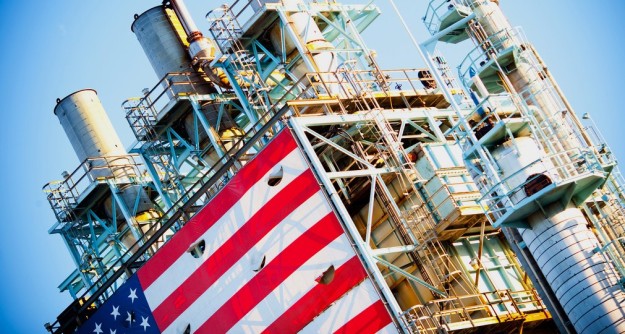

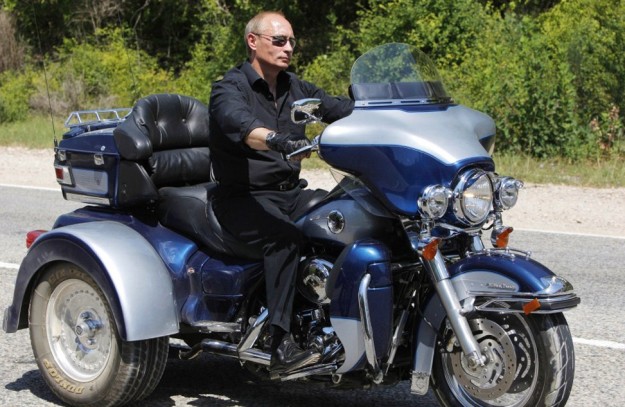

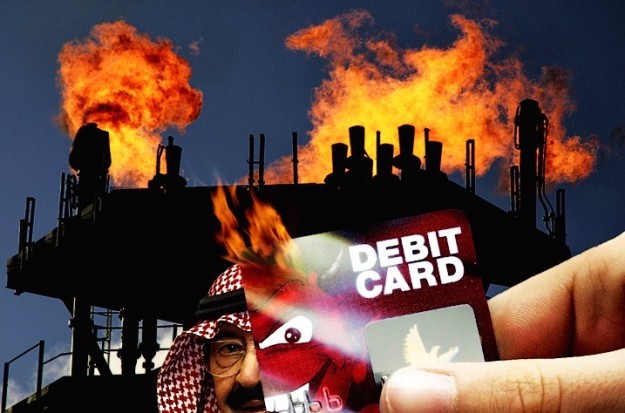

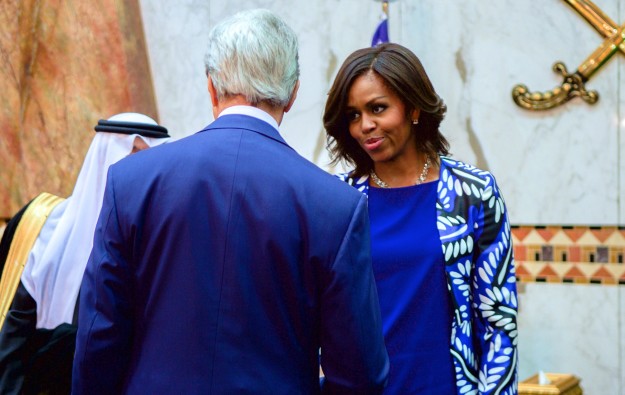
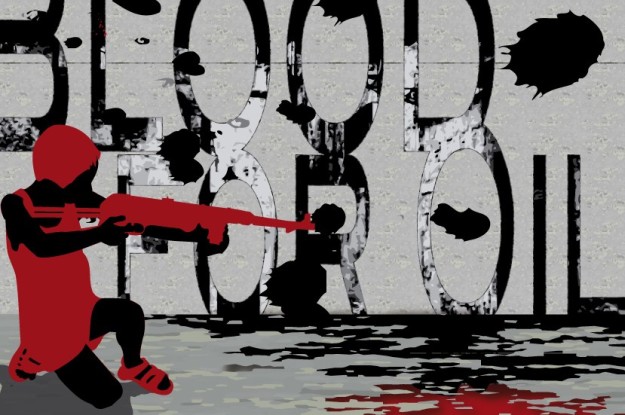
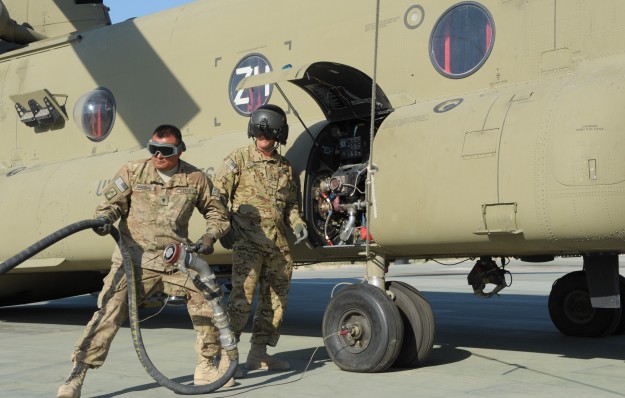
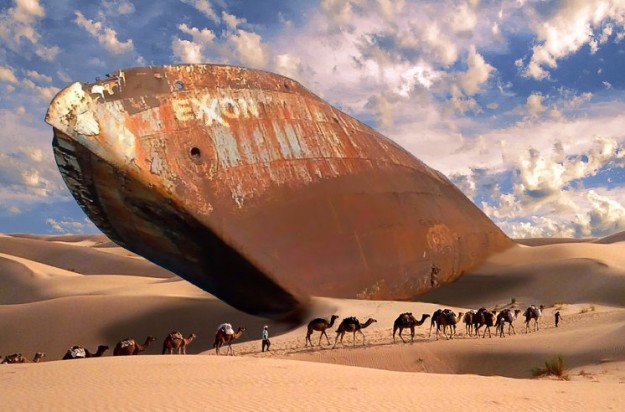











You must be logged in to post a comment Login